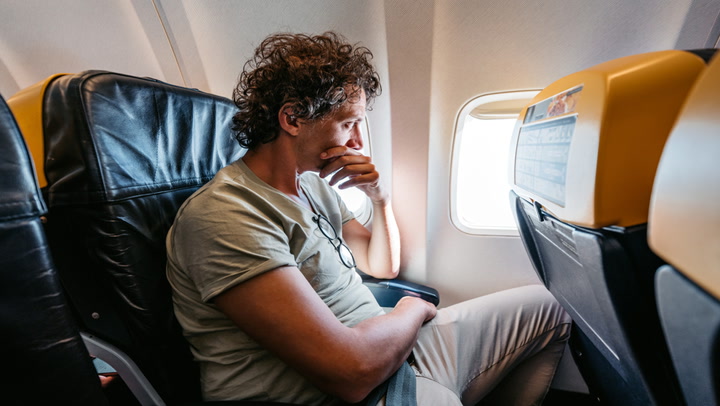Supporting Anxious Flyers: Expert Tips for Compassionate Travel
Aviophobia, or fear of flying, is diagnosed in about 2.5 percent of the population, but generalized anxiety or fear about flying is far more prevalent. Chances are you know someone who stresses in the days leading up to a flight. Consequently, the manifestation of flight anxiety can vary greatly.
“Anxiety about flying can range from mild to severe,” explained Jenny Matthews, LMFT, LADC, and owner of State of Mind Therapy. Matthews specializes in anxiety disorders and offers workshops for anxious flyers both online and at Minneapolis–Saint Paul International Airport. “Someone with mild anxiety may feel uneasy or experience nausea, yet still choose to travel. Conversely, individuals with severe anxiety may experience intense symptoms such as panic attacks and may avoid flying altogether.”

When supporting someone facing flight anxiety—be it a partner, friend, parent, or child—it’s crucial to communicate effectively. Matthews suggests asking, “How can I help you?” Some may prefer reassurance, while others may need silence. Understanding their preference can remove uncertainty and build your confidence in how to support them.
Doctor of psychology Elisabeth Crain also emphasizes the importance of moderating discussions around anxiety. “Do not dwell on their anxiety unless they initiate the conversation,” she advises. Instead, focus on positive activities during the flight.
Expert Strategies to Support Anxious Flyers
Here are some expert recommendations on how to best support anxious flyers:
1. Avoid Trying to “Talk Them Out of It”Anxiety is often rooted in fear, making it a complex emotion to alleviate through logic alone. Matthews advises, “Don’t attempt to change their perspective; instead, be present, calm, and supportive.”
2. Prepare for the Flight Ahead of TimeHelp reduce anxiety by discussing the flight in advance. Create a plan to address their concerns and encourage them to seek medical advice on managing anxiety. Knowing flight details can help make the anxious flier feel more grounded.
3. Communicate with Flight AttendantsEncourage the anxious flier to communicate openly with the flight crew about their anxiety. If they are uncomfortable, you can offer to share that information on their behalf. “The crew can provide reassurance and support throughout the flight,” Matthews adds.
4. Acknowledge Their FeelingsValidation is essential when addressing anxiety. Avoid encouraging alcohol or drugs as coping mechanisms unless prescribed. Crain notes that these substances may worsen anxiety symptoms. Reinforce your understanding with supportive phrases such as, “It makes sense that you feel this way.”

When traveling with an anxious child, engage them through play. Role-playing airport scenarios or utilizing comfort items can help ease their fears. Providing familiar objects can greatly assist with anxiety during the flight.
6. Bring Ample Entertainment OptionsPrepare a selection of activities to keep the anxious flyer occupied during the flight. Download podcasts or movies in advance and ensure they have headphones readily available. Remind them to prepare on their own to foster independence.
7. Model Calm BehaviorYour calm demeanor can help soothe an anxious traveler. Celebrate every small success during and after the flight. Provide positive reinforcement and encourage them to reflect on their experiences to foster growth for future travels.
8. Consider Post-Flight AdjustmentsBe mindful of how the stressful experience of flying can impact your travel companion. Flexibility is crucial after the flight; they may need rest or have varying appetites.
9. Address Your Own NeedsCaring for someone else’s anxiety can be draining. Ensure your own well-being by attending to your physical and emotional needs. Understand your emotional response after the flight and take necessary time for self-care.
10. Collaborate if Both Are AnxiousDiscuss strategies with your travel partner if both of you experience anxiety. Establish ground rules that divert conversations away from fears towards shared goals for the trip. This collaborative effort can enhance the travel experience for both individuals.
In summary, an anxious flyer benefits greatly from an environment of compassion and understanding. Their struggle is not an inconvenience, but rather an experience requiring support from those around them. Simply being present demonstrates profound support and can contribute significantly to their comfort.





